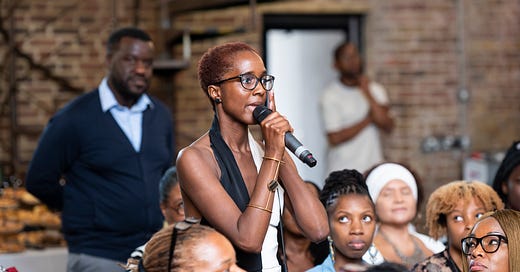Navigating racism in the publishing industry
Things I learned as a Black author, so you don't have to
“If you’re going to open your mouth, make an impression”
This is me at The Black Writers Guild (UK) at their annual summit in 2023, about to hold a panel of white leaders, at the top of publishing, accountable. You could hear a pin drop.
Keep reading with a 7-day free trial
Subscribe to Nova Reid's Substack to keep reading this post and get 7 days of free access to the full post archives.




